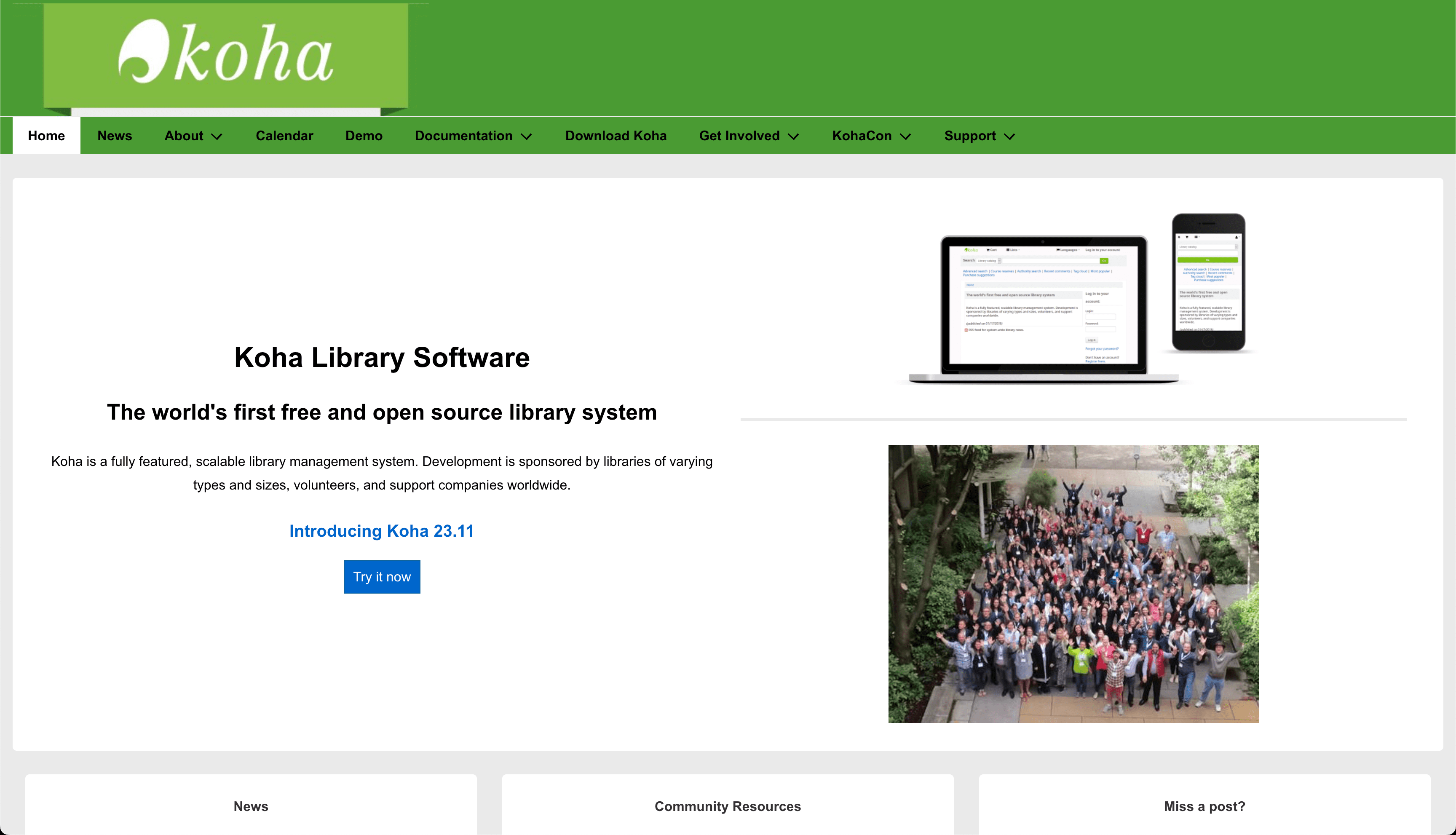Koha Library System
Koha is an open-source Integrated Library System (ILS), used worldwide by libraries of all sizes. The name "Koha" comes from a Māori term for a gift or donation, which is reflective of the software's open-source nature and community-driven development. It was initially developed in New Zealand in 1999 for the Horowhenua Library Trust and has since evolved into a comprehensive, fully-featured library management system. Being open-source, it is freely available for anyone to use, modify, and distribute.
Key Features of Koha:
- Catalog Management: Koha supports MARC21 and UNIMARC for bibliographic records, making it compatible with global library standards. Libraries can manage their collections efficiently, including books, journals, digital media, and other resources.
- Patron Management: The system allows libraries to keep detailed records of their patrons, including personal information, borrowing history, and preferences.
- Circulation: Koha automates the lending process, tracking item checkouts, returns, and renewals. It can handle reservations, inter-library loans, and generate overdue notices.
- Search and Discovery: Koha includes an OPAC (Online Public Access Catalog), allowing users to search the library's collection from anywhere. The OPAC is highly customizable and includes features like advanced search, user ratings, and comments.
- Acquisitions: Libraries can manage the entire acquisition process within Koha, from budgeting and ordering to receiving and invoicing for new materials.
- Serials Management: Koha supports the management of serial publications, including magazines and newspapers, tracking subscriptions and issues received.
- Reporting and Analytics: The system offers a wide range of reporting tools that help libraries analyze usage patterns, collection growth, financial expenditures, and more.
- Multi-branch Support: Koha is designed to support libraries with multiple branches, allowing for shared collections or branch-specific settings as required.
Advantages of Koha:
- Cost-Effective: Being open-source, Koha significantly reduces costs related to licensing fees, making it an attractive option for libraries with limited budgets.
- Community Support: A robust global community of users and developers continuously contributes to Koha's development, ensuring the system stays up-to-date with new features and improvements.
- Flexibility: Koha's open-source nature means it can be customized extensively to meet the specific needs of a library. Libraries can modify the code, add new features, or integrate with other systems.
- Transparency and Freedom: Unlike proprietary systems, Koha allows libraries full control over their system and data. There are no vendor lock-ins, and libraries can choose how they want to deploy and use the system.
Koha's comprehensive feature set and the active community behind it have made it a popular choice for libraries around the globe, from small community libraries to large university systems. Its continuous development and improvement reflect the collaborative spirit and innovation that drive the open-source community.

